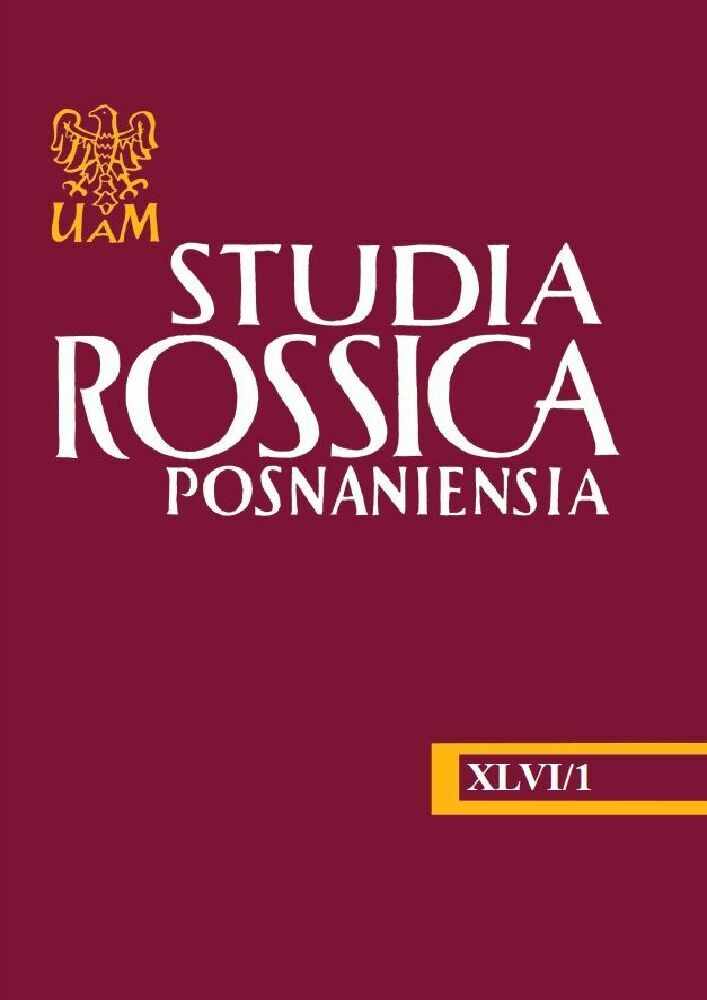Abstrakt
The structure, content and communicative significance of the oligarch concept are explicated using corpus analysis. The structure of the oligarch concept is asymmetric: the logical and figurative components are presented much more narrowly than the axiological one. The axiological component dominates the structure of the concept. Various assessments from the negative zone of the axiological scale are included in the axiological component of the concept. The logical components of the concept are ‘the presence of very significant financial resources’, ‘the source of finance – most often oil or other extractive industry’,‘power’, ‘participation in the actual government of the country’, ‘belonging to a certain country (more often Russia or Ukraine)’, and ‘opposition to official authorities and government’. The status of “oligarch” is associated with a small number of the same persons. All logical components are assessed negatively, disparagingly or ironically. The concept of an oligarch receives significant signs from the concept of wealth – the main part of the logical component and axiology. The article compares the axiological components of the concepts oligarch and wealth. As a result, the attitude of the “ordinary Russian people” to wealth and the oligarchs is
revealed: this is envy and distrust, a rich person has extremely negative qualities and has accumulated wealth in an illegal or immoral way.
Bibliografia
Karasik, Vladimir Ilʹič. Âzykovoj krug: ličnostʹ, koncepty, diskurs. Volgograd, Peremena, 2002.
Kiva, Aleksej Vasilʹevič. „Rossijskaâ oligarhiâ: obŝee i osobennoe”. Obŝestvennye nauki i sovremennostʹ, 2, 2000, s. 18–28.
Kondratʹeva, Olʹga Nikolaevna. „Metaforičeskaâ reprezentaciâ oligarhii v rossijskom mediadiskurse ХХI veka”. Naučnyj dialog, 9 (57), 2016, s. 47–57.
Kušnir, Olʹga Nikolaevna. „Èvolûciâ makrokoncepta «vlastʹ» kak fenomen nedestruktivnogo «rasŝepleniâ» konceptosfery”. Vestnik Čuvašskogo universiteta, 2, 2012, s. 287–296.
Levontina, Irina Borisovna. Russkij so slovarem. Moskva, Azbukovnik, 2010.
Makeeva, Natalʹâ Sergeevna. Koncept „bogatstvo” v russkom âzykovom soznanii (na fone ispanskogo âzyka): avtoref. dis. kand. filol. nauk: 10.02.2001. Moskva, 2009.
NKJR – Nacionalʹnyj korpus russkogo âzyka. Web. 30.12.2019. http://www.ruscorpora.ru.
Popova, Zinaida Danilovna, Iosif Abramovič Sternin. Očerki po kognitivnoj lingvistike. Voronež, Istoki, 2001.
Stešina, Elena Gennadʹevna. Koncepty „bogatstvo” i „bednostʹ” v molodežnom âzykovom soznanii russkih i angličan: dis. kand. filol. nauk: 10.02.2019. Saratov, 2008.
Licencja
PRACE PUBLIKOWANE W CZASOPIŚMIE DOSTĘPNE SĄ NA LICENCJI CREATIVE COMMONS:
Uznanie autorstwa-Użycie niekomercyjne-Na tych samych warunkach 4.0 Międzynarodowe.
Autorzy tekstów przyjętych do publikacji w czasopiśmie „Studia Rossica Posnaniensia” są zobowiązani do wypełnienia, podpisania i odesłania na adres redakcji umowy o udzielenie nieodpłatnej licencji do utworów, z zobowiązaniem do udzielania sublicencji Creative Commons.
Zgodnie z umową, autorzy tekstów opublikowanych w czasopiśmie “Studia Rossica Posnaniensia” udzielają Uniwersytetowi im. Adama Mickiewicza w Poznaniu niewyłącznej i nieodpłatnej licencji oraz zezwalają na użycie sublicencji Attribution-NonCommercial-ShareAlike 4.0 International (CC BY-NC-SA 4.0).
Autorzy zachowują prawa do dalszego, swobodnego rozporządzania utworem.
Autorzy, którzy wykorzystują w swoim tekście cudze utwory (np. ilustracje, fotografie) proszeni są o dostarczenie do redakcji czasopisma zgody na publikację.
Użytkownicy internetu uprawnieni są do korzystania z utworów opublikowanych po 2015 roku “Studia Rossica Posnaniensia” tylko w celach niekomercyjnych, pod następującymi warunkami:
https://creativecommons.org/licenses/by-nc-sa/4.0/
Uniwersytet im. Adama Mickiewicza w Poznaniu zachowuje prawo do czasopisma jako całości (układ, forma graficzna, tytuł, projekt okładki, logo itp.).

